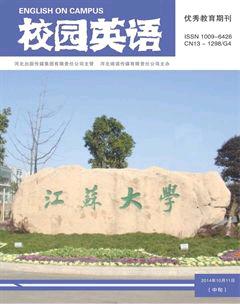An Analysis on Langston Hughes’Writing Technique
娄佳丽
【Abstract】Langston Hughes shows a different writing technique in his short story Early Autumn.He uses plotlessness, an irregular narrative technique, to reflect the characters emotional undercurrents beneath the calm surface and also forms a sharp contrast with the characters intense emotional change.
【Key Words】plotness; setting; language
1.Langston Hughes (1902-1967) is a versatile black writer in American literature.His works range from poems to drama, from short stories to childrens books.Humor, the most significant characteristic of Hughes works, is used perfectly to illustrate the main idea of his works not only in poems but also in short stories.However, in early autumn, all his humor has gone.Therefore, this paper will analyze the most important aspect, that is: plotlessness, to explore the different characteristics he used in early autumn and to reflect the characters emotional undercurrents beneath the calm surface.
2.plotlessness: an irregular narrative technique
Early autumn told a story about two lovers who broke up with each other for ‘something not very important .Several years later, they met each other by accident, after the ritual greetings and small talks, they moved on.Obviously, this is a story with no plot, a story that only tells the reader a simple story without cause and effect, but, it is this story that touched the hearts of every reader.Hughes perfectly arranged three events.At the beginning of this short story, he directly told the reader that Bill and Mary were in love, after many sweet nights they broke up for rifle things.Then, out of impulse Mary married a man whom she was in love with only at the first place.Her behavior hurt Bill to the core, and from then on Bill was always full of hatred for woman.Instead of focusing too much on the cause of their breaking up, Hughes just gave a slight brush to it and subtly led the reader to the following events.But one thing the readers can be sure about is that Mary does hurt Bill.Then Hughes brings the reader from the past to the present.Mary met Bill in Washington Square for the first time in years.Mary recognized Bill at the first sight from the crowds, therefore conversations began.As for this part, Hughes spares no effort to describe their common but sudden meet, which makes the readers feel so real as if they were standing next to them listening.During their conversations, Mary is positive all the time, while Bill is relatively passive.It is Mary who first recognized her ex-boyfriend Bill from the crowds and can still call his full name, Bill Walker.When meeting Bill, Mary unconsciously lifted her face as though wanting a kiss.She told Bill that she missed him so much and ‘always wondered what happened to you, Bill.She even named her youngest son after Bill.Bill can not recognize Mary at the same time Mary called him.He was calm, even a little reluctant when meeting his ex-girlfriend.Their conversations are quite like those between strangers, all about family, husband, wife and children.Even though, it cannot cover the emotional undercurrents beneath the calm surface of Mary, because she was long for this meeting as she was still in love with Bill, and this unexpected meeting seemed to be a opportunity to back together but Bills attitude crashed her dream.Bills coldness made her embarrassed and speechless, the only way to end this was to rush into the bus and left without telling him her address or asking for his, and thats the end of the last event and the end of the whole story.Putting all the events together, the readers can get a dynamic picture of this story, it told the readers that one event started from some point of time, after certain duration of time, it came to an end at some point of time.The whole process reflected the real life dynamically and made the readers become a part of it voluntarily.
Langston Hughes used plotlessness in his short story early autumn to give the readers a very natural description of the emotional undercurrents of the protagonist.Hughes contributes a very simple but long-living short story to American literature, even to the world literature.
Reference:
[1]Amold Rampersad.The Collected Poems of Langston Hughes [C].New York: Vintage Books, 1995.
[2]E.M.Forster.朱乃长译.小说面面观[M].北京:中国对外翻译出版公司,2002.
[3]Wilfred L.Guerin, Earle Labor, Lee Morgan, Jeanne C.Reesman & John R.Willingham.A Handbook of Critical Approaches to Literature[M].Shanghai: Foreign Language Teaching and Research Press.
[4]申丹.叙述学与小说文体学研究[M].北京:北京大学出版社, 2004.

